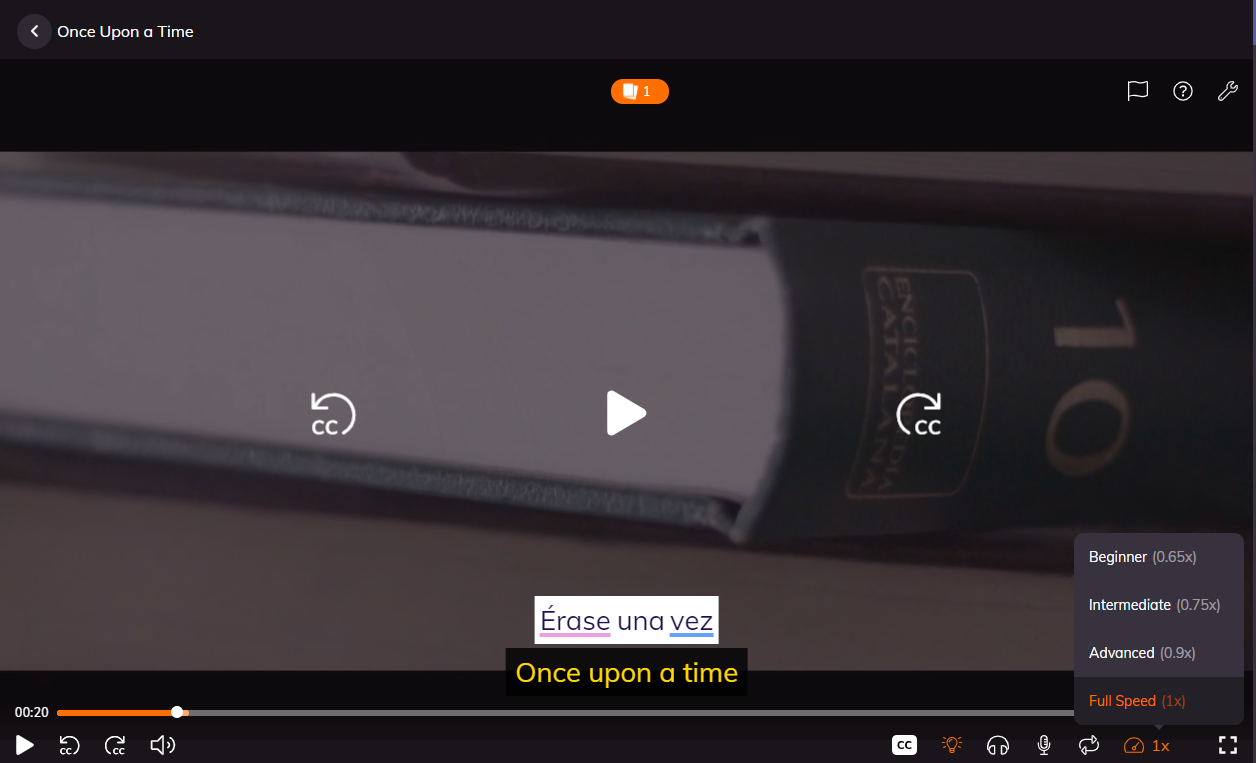How to stay motivated in Language Learning
written by: Krystof-Sandor Harfst
Table of Content
Introduction
Learning a new language is very complicated and stressful, especially after the excitement has faded.
However, many resources can help sustain your motivation and engage you in the language-learning process.
These resources offer valuable tools and features to help you on your journey and make it more enjoyable. In this article, we will discover several ways to improve motivation for language learners.

Using Books to Stay Motivated
Find Inspiration Through Language Learning Books
Language learning books are a source of inspiration and motivation for those learning a new language.
These books often have success stories, cultural insights, and effective learning techniques that drive you towards success.
One such book is "Fluent Forever" by Gabriel Wyner. It focuses on memory techniques and efficient learning strategies. The book is practical and inspires language learners who want to improve their skills.
Another amazing book is "Polyglot: How I Learn Languages" by Kató Lomb, a renowned language learner. In his motivational book, Lomb shares personal experiences and insight into the language learning process.
These books can help you gain new perspectives and discover effective strategies for progressing your language learning journey.
The experiences of successful language learners, coupled with their techniques, act as an aid.
They remind you that language learning is possible and that, with the right mindset and approach, you can become proficient in any new language.
Explore Cultural and Literary Works
Apart from reading books about language learning, another way to stay motivated is to explore cultural and literal works.
Depending on the language you’re learning, you could read short stories, novels, or children’s books in that language. This process will help you understand and enjoy the learning process.
By immersing yourself in the literature of the new language, you will begin to experience their culture.
Apps to Boost Language Learning Motivation
Stay Consistent with Gamified Language Apps
Language learning apps like Duolingo and Memrise offer gamification to make the learning process enjoyable.
These apps have features like rewards, streaks, and leaderboards. These features motivate users to practice the new language daily. Completing each task gives you a sense of accomplishment and aids in consistency.
For instance, Duolingo encourages its users to maintain a daily streak. They achieve this streak via daily practice. The practice motivates learners to stay committed to the language learning journey.
Duolingo rewards its users with virtual currency to unlock new features or customize their experience. Competitive leaderboards foster a sense of motivation as their users try to outperform their peers.
Memrise takes a similar approach, using gaming elements on its platform. The game gives users badges and rewards after they complete lessons and achieve milestones. Memrise also provides interactive exercises and quizzes. These features help make the learning process more enjoyable.
Dive into Bite-Sized Learning with the Headway app
Apart from gamified learning apps, the Headway app is for busy learners who do not have time for language learning.
It provides summaries of motivational books to encourage you on your journey. It is ideal for people with busy schedules who can't find time to read full books but need motivation.
The Headway app helps learners to explore a variety of books about personal development, motivation, etc.
With these resources, you can gain valuable insight and techniques that help your language learning efforts.
These summaries can inspire and motivate you on your language-learning journey, even during your busy lifestyle.
Use Spaced Repetition Apps for Long-Term Retention
Spaced repetition apps like Anki and Quizlet help with long-term vocabulary retention. Using spaced retention systems (SRS), these apps leverage the science of memory to promote learning efficiency.
They space out the review of vocabulary and concepts so that the users do not experience burnout.
Anki and Quizlet help learners keep information by presenting flashcards at intervals to help people’s learning progress. With this method, users can review words or concepts before they forget them.
This process helps users witness their progress and tangible results, causing confidence and motivation in their language learning journey. Combining Books and Apps for Maximum Motivation
Create a Balanced Learning Routine
Having a structured combination of books and apps in your routine is a great way to maximize motivation. These two resources help you to enjoy serious study sessions and light, fun activities.
For instance, a good way to combine books and apps to create a balance is by first reading a chapter from a book in the target language. After that, you back it up with daily practice on a language-learning app.
With this incorporation, you can engage with the different aspects of language acquisition.
Using an app provides you with interactive exercises for improving punctuation and grammar. Reading a book, on the other hand, helps you expand your vocabulary and gives you insight into their culture.
Integrating variety into language learning helps you maintain interest and prevent monotony. By alternately using apps and reading books, you regularly expose yourself to new learning methods.
The content helps catalyze your motivation level as you explore different genres, topics, and interactive features.
Track Progress and Celebrate Milestones
Tracking your progress and celebrating milestones are vital ways to maintain motivation throughout your language-learning journey. Get a journal or an app that helps with tracking language learning progress.
Track your growth and record your achievements. Also, ensure that you identify areas that need more effort.
Celebrate small milestones in your journey. For example, you could celebrate reaching a new level in a language learning app or completing a book in the target language. Research has shown that acknowledging your growth has psychological benefits.
Celebrating gives you a sense of accomplishment and boosts your confidence more than you think. It also helps to reinforce your commitment to continuing and ultimately finishing the language-learning journey.
Reward yourself with simple things like engaging in a fun activity totally unrelated to language learning or treating yourself to your favourite snack or food.
Conclusion
Lack of motivation is not uncommon among language learners. As a result, many people need help with their language-learning journey.
For anyone who has decided to learn a language independently, without people encouraging you, your motivation level might keep dropping. However, with technology and literature, staying motivated has become less of a problem.
We have outlined several tricks and resources that can enhance your motivation and speed up your language-learning process. Don’t forget to check out the Headway app for book summaries. Follow through on these steps and watch yourself get motivated again.
Share this article!






